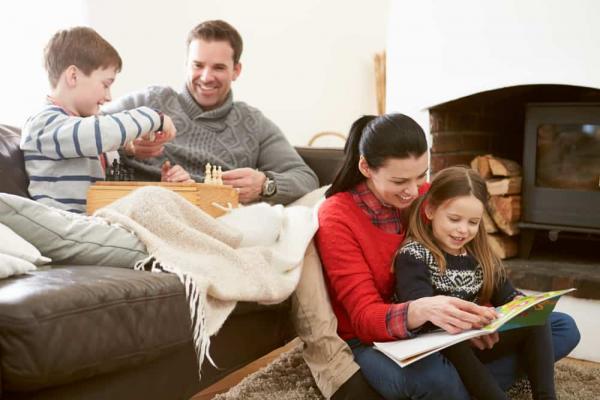
Intimate relationships are evolving. More and more often couples are choosing to cohabit instead of making the commitment to each other through marriage.
Some may argue that a cohabiting relationship is only different from a marriage because of a piece of paper, some jewelry or a ceremony. However, a study shows that cohabitation and marriage are not equal — not just in regards to the relationship, but also how it affects the children.
One in four children are born in cohabiting families — a number that has nearly tripled since the late 1990s. Though many may think, "Well, that's better than being a single parent," that's not really the case.
Children born into cohabiting families are more likely to suffer from unstable circumstances. In a marriage, there is a legal and often religious aspect to the committment and couples may tend to work harder to keep their relationship strong. However, in cohabitation, there is less of a committment to the relationship and to the well-being of family.
When the relationship goes sour, the children are then subject to new boyfriends or girlfriends who will more than likely also cohabit with the remaining parent. This disrupts the feelings of stability for the children and can drastically alter the dynamics of the home life. Poverty is more likely, as well as incidences of physical, sexual and emotional abuse. It's also important to recognize that children learn by example. If their parents have multiple partners, allow domestic or other abuses and have instability in their lives, the children will most likely follow suit as they mature into adults.
"On average, children living with cohabiting biological parents fare worse on several social, psychological, and educational outcomes than children born to married parents ... [they] are more likely to use drugs, suffer from depression, and drop out of school than children from married-parent families," according to the study.
As it turns out, cohabiting families are only barely better than single-parent homes. On the outside, they look similar to married-parent homes, but the studies show that on the inside, the differences are notable.
So, what can be done?
-
If you are considering cohabitation, consider marriage instead. If you're leery of marrying your current partner, you may need to reconsider the relationship.
-
If you're currently cohabiting, get married. Extend that extra amount of committment to your relationship. Strengthen your relationship and be that example for your children.
-
If you're married, keep your relationship strong or make it more solid by working on your marriage together. Have date nights, attend therapy if you need to work out bigger problems and make sure you are both fully committed to each other and your family.
The decline of married homes and the increase of broken or cohabiting families is having a negative effect on our children and on our society. We need to pass along the importance of marriage to our children — the future of our world. Be the example of strength and happiness in marriage where possible. Encourage children to make a goal of marriage. It may seem like a small thing, but will make a world of difference.

